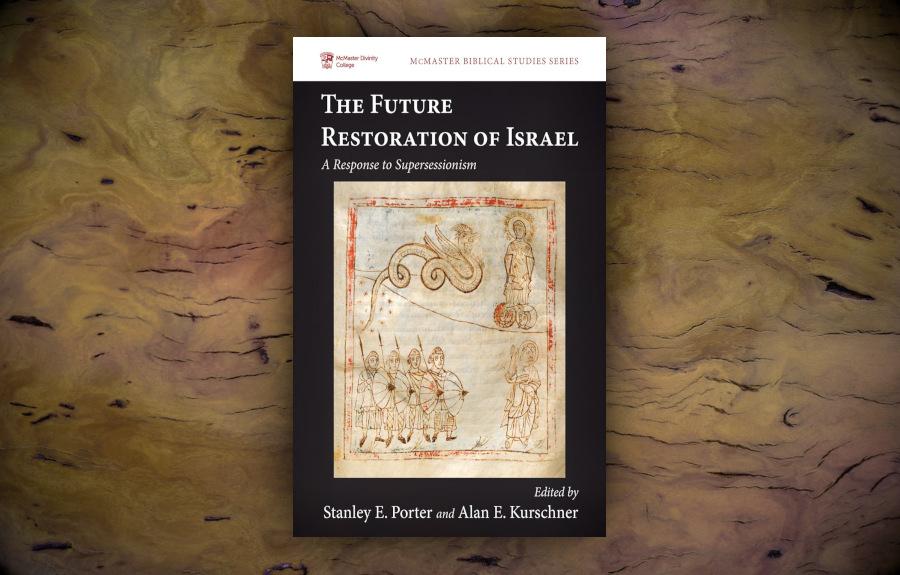A Review of ‘The Future Restoration of Israel’ (Part 5)
Image

Read the series.
Part Four of the book contains essays on “Jesus and Israel’s Future.” Michael Wilkins is well known as an expert on the Gospel of Matthew, and his piece considers how the Gospel tackles Israel’s future is portrayed in light of the negative reactions to Jesus’ ministry (e.g., 314).
Wilkins’ long essay includes several interesting facts surrounding the Gospel and expositions of several Matthean statements. I appreciated the fact that “almost every use of the title “Son of David” in Matthew’s recounting of Jesus’ ministry is in direct connection with Jesus’ healing power, either requested or experienced” (315). He notes a growing consensus in Matthew scholarship that Jesus is inveighing against the Jewish leadership in Matthew 21:43 and not Israel as a nation (327). Wilkins believes that the establishment of Israel in 1948 is “a confirmation of Jesus’ prophetic statement” in Matt. 10:23 (337). I think that is very much up for debate since the connection is obscure and the prophetic tradition, in my view, is focused upon the Tribulation. However, when he goes on to assert that 1948 shows God’s care for Israel I would agree.
Another lengthy chapter is “The Future of the Jewish People in the Light of Matthew’s Vineyard and Mark’s Fig Tree” by Craig A. Evans. The first pages of Evans’s chapter contain a few critical notes one might find in mainstream scholarship (341-342), but once he gets going the material is good. Evans looks at how the Church Fathers interpreted Matthew 21:43 (344-348) before proceeding to “modern interpretation.” He says that the range of opinions on Matthew 21:43 is wide (349), and proceeds to give many samples of supersessionist views in the commentaries (349-350, 354-356). I would characterize it as a helpful bibliographic essay.
The last part of the book is titled “Supersessionism in the Past.” It features two pieces, the first being by Helene Dallaire, “Anti-Semitic supersessionism.” Dallaire gives a helpful overview of supersessionism in the Church up until the Reformation. It is an excellent presentation which really needed to be longer!
Mitch Glaser finishes off with a chapter on “The Impact of Supersessionism on Jewish Evangelism.” Glaser chooses to interact with three amillennialist supersessionists, Gary Burge, Colin Chapman, and Stephen Sizer (380). I know these men are prominent supersessionists so I can’t blame Glaser for picking them, but I think a book like this would have benefitted from interactions with more influential scholars within Evangelicalism such as G. K. Beale and N. T. Wright. The chapter has a section in which the author identifies 11 “Hallmarks of the Christian Non-Zionist Position” (382). I have encountered all of these opinions many times, both in person, in books, and online. It closes the book off well. Author and Scripture indexes complete the book.
The Future Restoration of Israel is not a cheap purchase, but it is one of the best books I have read on the ongoing problem of supersessionism in the Church and the biblical response to it. I congratulate the editors in their selection of contributors, each of whom brought insight into the issue. The fact that they haled from different theological camps and that therefore their essays sometimes challenged one another was a plus in my opinion. For someone who wants to study the subject I recommend they sit down with this work and read it through carefully with Bible in hand.
Dr Reluctant Articles
Reposted from Dr. Reluctant.
Paul Henebury Bio
Paul Martin Henebury is a native of Manchester, England and a graduate of London Theological Seminary and Tyndale Theological Seminary (MDiv, PhD). He has been a Church-planter, pastor and a professor of Systematic Theology and Apologetics. He was also editor of the Conservative Theological Journal (later Journal of Dispensational Theology). He is now the President of Telos School of Theology.
- 133 views


Discussion